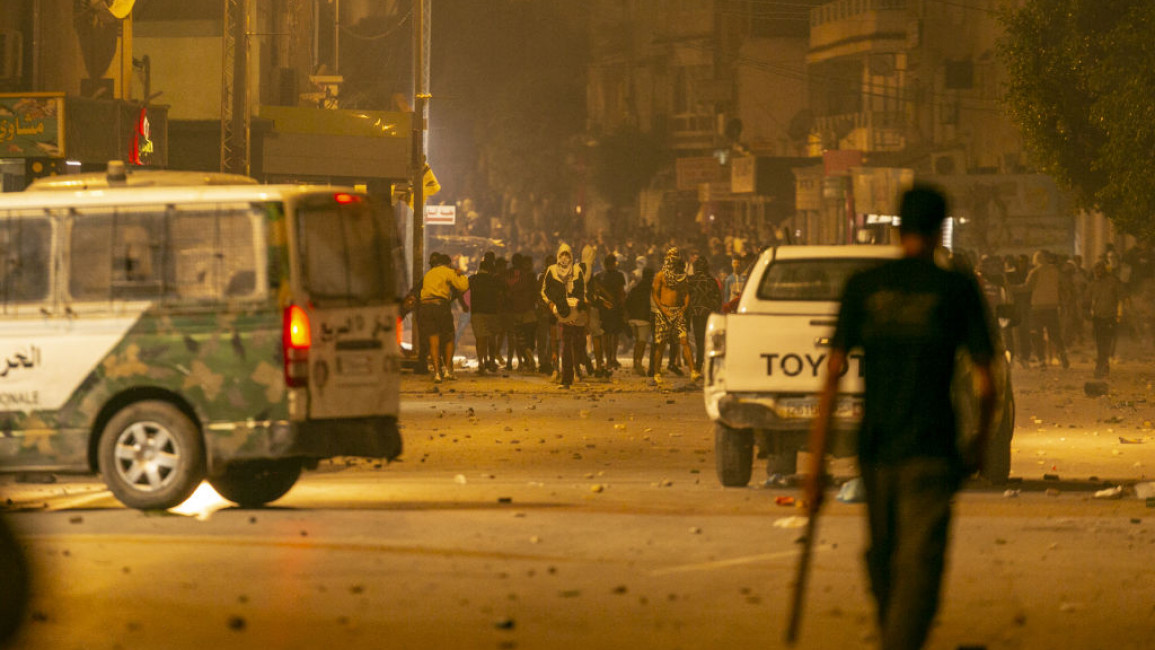Protests against 'oppression' in Tunisia expand for the sixth day
Protests in Tunisia continued for the sixth day as police violence, poverty, and oppression fueled public outrage in the North African state.
From the north to the south of the country, dozens poured out to the streets Wednesday night, protesting once again the death of Malek Sellimi, a 24-year-old Tunisian who was severely injured in a police chase before dying of his wounds.
Protesters also denounced the rapid burial of four people - suspected of being missing Tunisians whose boat capsized as they attempted to reach Europe - in a cemetery for foreign migrants and allegedly without any effort by authorities to identify them or notify their families.
The two tragedies inflamed long-standing anger over the state's shortcomings in its economic and political policies.
Protests and Blocked roads in El Kram, Tunis...#Tunisia#Protests pic.twitter.com/pn6UsWjcVb
— Souhail Khmira (@SKhmira) October 19, 2022
Last week, demonstrations against the Tunisian police erupted in Taddamoun, a working-class neighbourhood in Tunis, where Malek Sellimi has lived.
At the same time, families of missing migrants protested in Zarzaris, in western Tunisia, demanding the truth behind the rushed burial of their relatives.
The two uprisings merged on Wednesday with protestors in Tunis, Zarzaris, and Moknine (centre Tunisia) chanting in unison against oppression and injustice.
Local Radio Mosaique said protestors set rubber tires on fire, blocked roads, and threw stones at passing cars.
The National Guard has reportedly fired gas and sound bombs extensively to disperse the crowds.
On Monday, President Kais Saied asked Justice Minister Leila Jaffel to open an investigation "so that Tunisians can know the full truth and who was behind these tragedies".
Meanwhile, Tunisia's interior ministry denied allegations of wounding Malek Salimi and claimed that he was stopped with his two friends as part of a routine procedure, but he fled and fell from a high wall.
The ministry has also said that "a number of intruders participated in the protests for political purposes and to carry out operations of dislocation and theft."
Since Saied's power grab last July, political rifts have disrupted the country and human rights groups warning the birthland of the Arab uprisings of 2011 is moonwalking back to a repressive pre-revolution era.
The economic hardship, worsened by the Ukraine war and Saied's policies, drove thousands of Tunisian youth to risk their lives in irregular migration as poverty and unemployment soared in the cash-strapped country.



